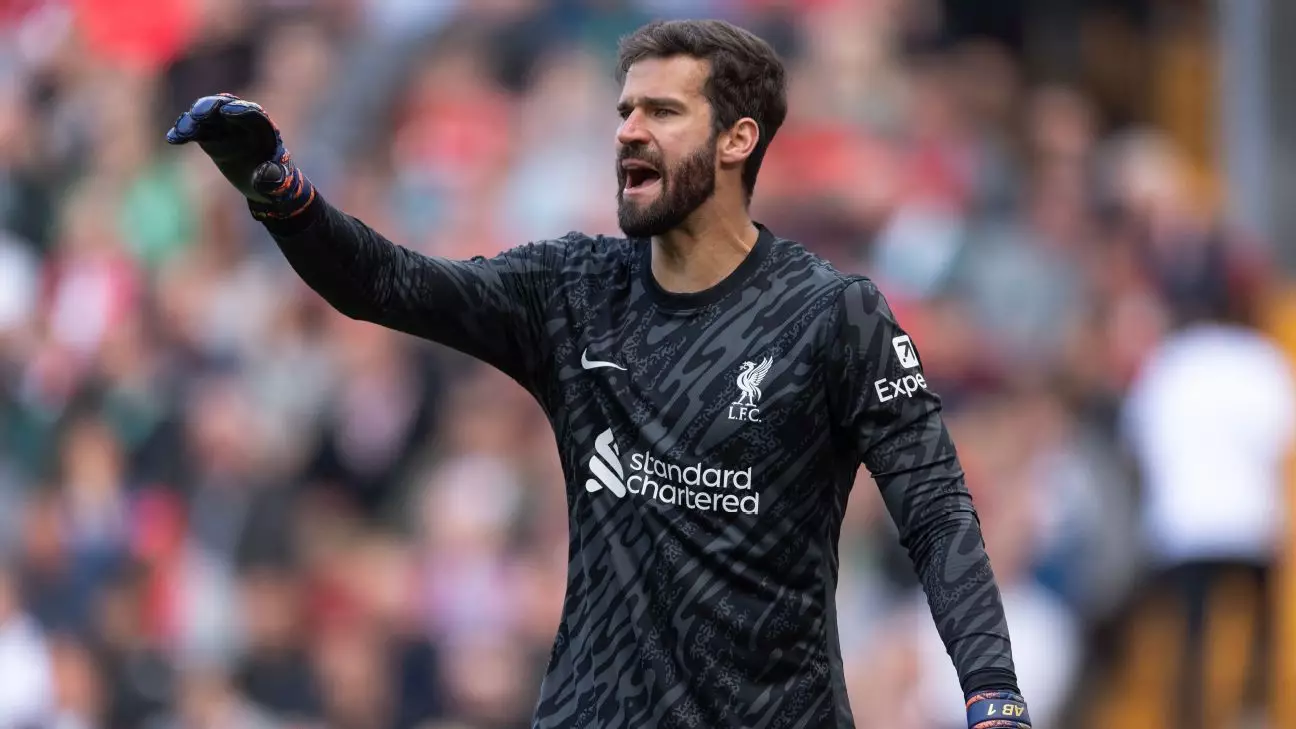As football rapidly evolves, the implications of a revamped Champions League format raise significant concerns about player welfare. Alisson Becker, Liverpool’s esteemed goalkeeper, recently voiced a critical perspective regarding the expanded league phase, which now includes two additional matches for each team. This expansion, which could mark the longest season in football history, is compounded by upcoming challenges such as FIFA’s newly structured Club World Cup set for next summer. Such drastic changes not only alter the competitive landscape of the sport but also amplify the urgent need for player input in these monumental decisions.
Despite being the backbone of the game, players often find their opinions disregarded in discussions regarding scheduling and format changes. Alisson’s candid remarks highlight a pervasive sentiment among athletes who feel increasingly burdened by a relentless schedule. “Nobody asks the players what they think about adding more games,” he articulated, stressing a prevalent frustration. This notion suggests a crucial oversight by governing bodies, which fail to recognize that player health and performance are at risk when their voices are not incorporated into decision-making processes. The fatigue that ensues from such an extensive fixture list can hinder competitive integrity, making it imperative for authorities to engage with players before instituting significant changes.
Contrasting Perspectives on Competition
Interestingly, while previous Liverpool manager Jürgen Klopp was vocally critical of congested schedules, his successor, Arne Slot, offers a more nuanced view. He acknowledges the allure of frequent fixtures for fans but simultaneously questions the sustainability for players. “How is it going to be with two extra games for the players?” Slot asks, highlighting the conundrum at play. This duality in perspectives signals a complex issue; while the excitement of regular fixtures may entertain fans, it risks diminishing the quality of play and player health.
As Liverpool prepares for their inaugural fixture against AC Milan in this season’s revamped Champions League, the ramifications of the schedule become even more pressing. With players facing a grueling eight-game league phase prior to the knockout rounds, fatigue levels could rise dramatically. The notion of maintaining peak performance under such constraints is fraught with challenges. It is essential that governing bodies not only listen to concerns but also implement changes that prioritize the physical and mental well-being of players.
In light of these developments, it is clear that football’s evolution needs a player-centric approach. Reinforcing dialogue between governing bodies and players could pave the way toward a more balanced and sustainable football ecosystem. Stakeholders must prioritize the health and competitive integrity of the sport by establishing mechanisms for player input. As the beautiful game continues to undergo transformation, ensuring that athletes are at the forefront of these discussions is not just preferable; it is essential. The time has come for football to evolve in a manner that respects and considers those who dedicate their lives to the sport.

Leave a Reply